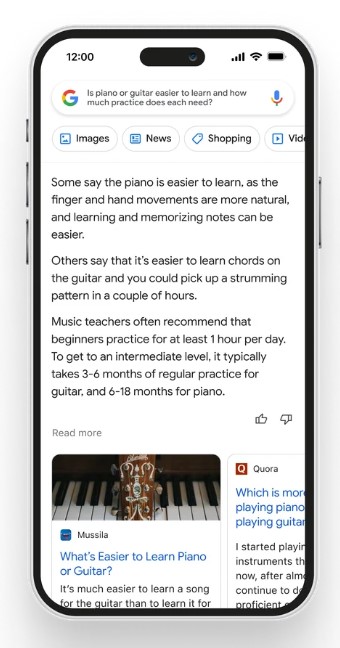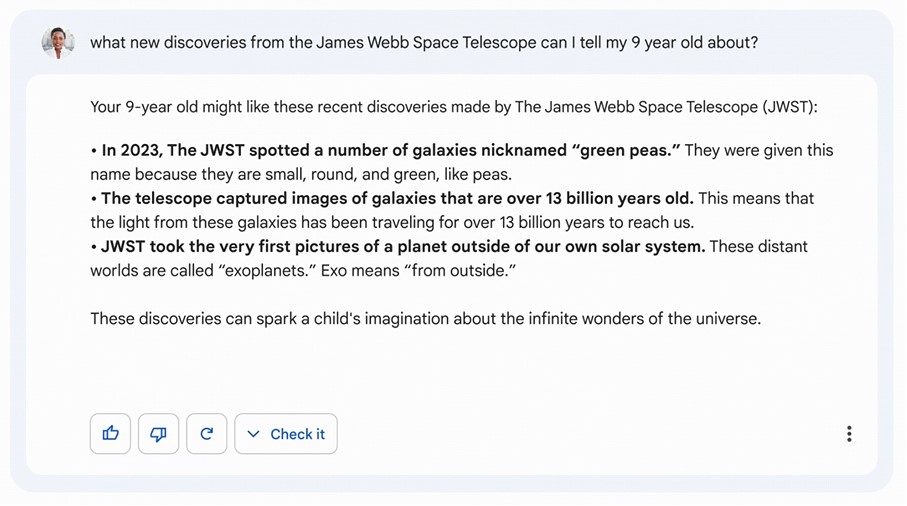Google announced its AI-powered conversational service – Bard. It is powered by LaMDA and will deliver accurate and high-quality answers to users
The popularity of Open AI’s popular chatbot ChatGPT has lead to Google’s new conversational AI service, Bard.
Language models are trained on a diverse range of internet text and have the ability to generate human-like text responses to a given prompt. They are based on transformer architecture and fine-tuned on a massive corpus of conversational text. These models are used for a variety of natural language processing tasks, including text generation, conversation simulation, and language translation. ChatGPT is a well-known large-scale language model based on artificial intelligence.
Google CEO Sundar Pichai in his message said “the company has continued to make investments in AI across the board, and Google AI and DeepMind are advancing the state of the art.
What is Bard?

Bard seeks to combine the breadth of the world’s knowledge with the power, intelligence and creativity of our large language models. It draws on information from the web to provide fresh, high-quality responses.
How can it Bard be used?
As of now as per sources, Bard will accessible to “trusted testers” starting Monday. It is expected that in the coming weeks, it will be accessible to the public.
Where can you use Bard?

An example, demonstrated by Google showcases how one can use Bard to simplify complex topics, like explaining new discoveries from NASA’s James Webb Space Telescope to a 9-year-old.
What next?
Conversational AI service has been useful in many ways including:
- Customer Service: Companies use conversational AI to provide 24/7 customer support, handling inquiries and providing assistance through chatbots.
- Sales and Marketing: Conversational AI can be used to engage with potential customers, answer their questions, and guide them through the sales process.
- Virtual Assistance: Virtual assistants powered by conversational AI can help users with tasks such as scheduling appointments, finding information, and managing their daily lives.
- Healthcare: Conversational AI is being used in healthcare to provide patients with information about their conditions, assist with symptom checking, and even provide a preliminary diagnosis.
- Education: Conversational AI can be used to create virtual tutors and provide personalized educational experiences.
- Financial Services: Banks and other financial institutions are using conversational AI to provide customers with information about their accounts, process transactions, and offer financial advice.
Google and Conversational AI Service in Search:
We feel the conversational AI Service in Search will help people explain complex topics with ease. It can be used to enhance search experiences and provide more accurate relevant results. By making search more natural and intuitive, conversational AI has the potential to greatly improve the way people access and consume information.
Conversational AI services can be used in a search in several ways, including:
- Natural Language Processing (NLP) based search: Conversational AI models can be used to understand and process natural language queries, making search more human-like and intuitive.
- Chatbots: Chatbots powered by conversational AI can be integrated into websites and apps to provide users with a conversational interface for searching and retrieving information.
- Voice search: Conversational AI can be used to recognize and process spoken queries, enabling users to search using only their voice.
- Q&A systems: Conversational AI can be used to create Q&A systems that can understand and answer questions posed in natural language, improving the accuracy and relevance of search results.
- Personalized search: Conversational AI can be used to learn about a user’s preferences and provide them with personalized search results based on their past searches and interactions.
We believe…
Bard is Google’s answer to ChatGPT and AI Chatbots. One cannot ignore that Google’s introduction of Bard comes a day before Microsoft is conducting an event at its headquarters and is expected to introduce OpenAI’s ChatGPT to its own search engine, Bing
